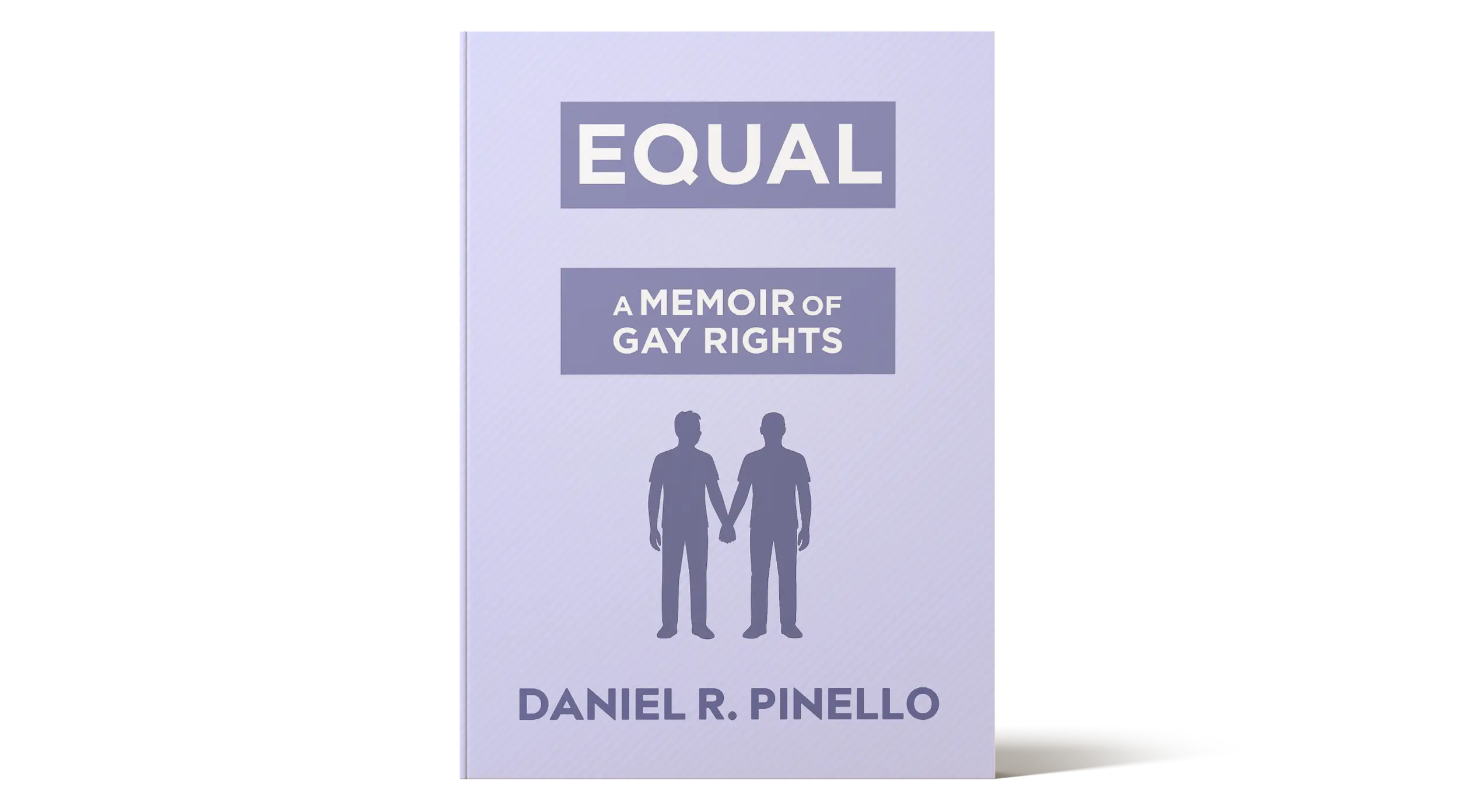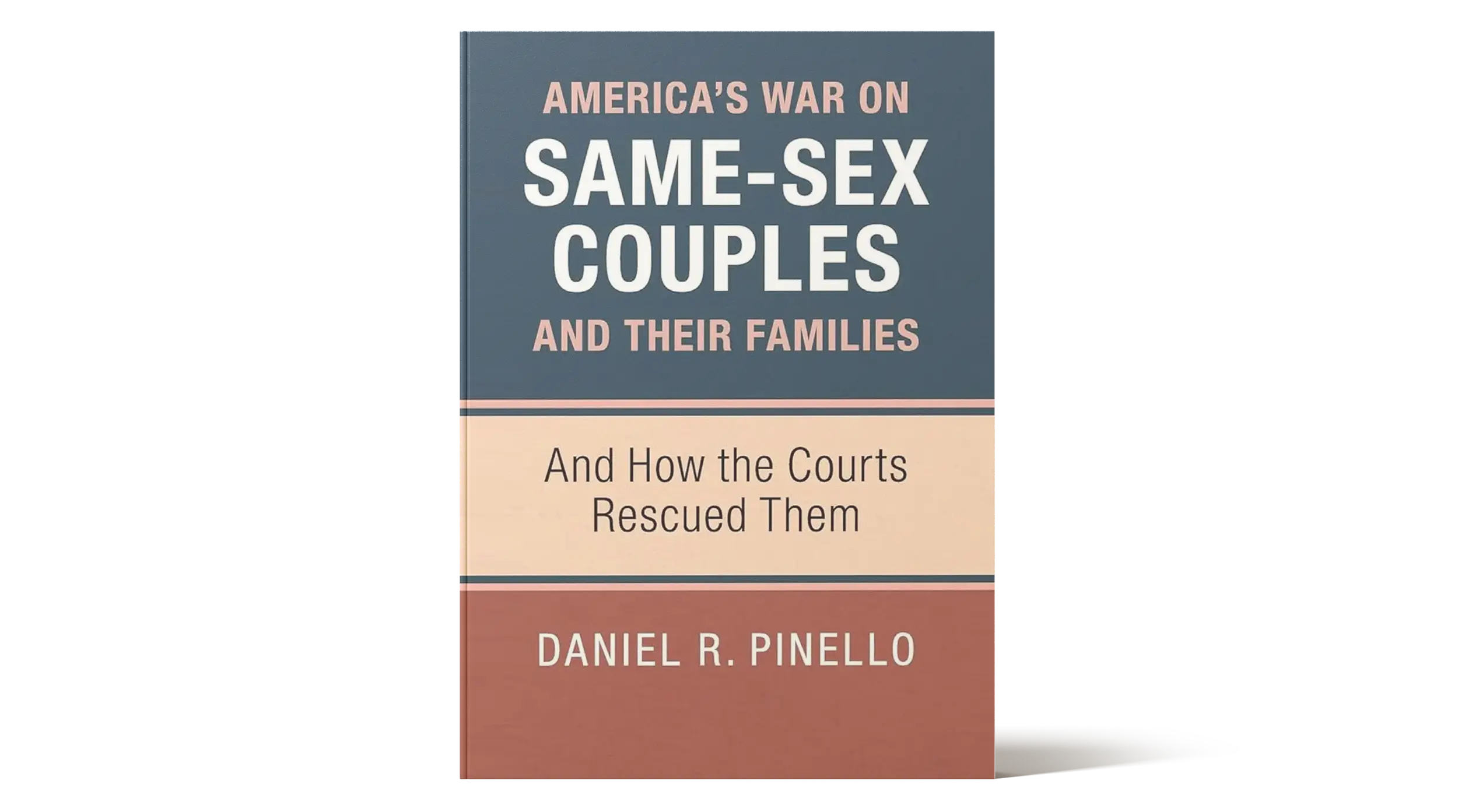[See Casey Charles, The Sharon Kowalski Case: Lesbian and Gay Rights on Trial (University Press of Kansas 2003), for additional information on this decision.]
Guardianship of Kowalski
Minnesota Court of Appeals
478 N.W.2d 790
December 17, 1991
DAVIES, Judge.
Appellant Karen Thompson challenges the trial court’s denial of her petition for guardianship of Sharon Kowalski, and the court’s award of guardianship to Karen Tomberlin. We reverse and remand for appointment of Karen Thompson as guardian.
FACTS
Sharon Kowalski is 35 years old. On November 13, 1983, she suffered severe brain injuries in an automobile accident which left her in a wheelchair, impaired her ability to speak, and caused severe loss of short-term memory.
At the time of the accident, Sharon was sharing a home in St. Cloud with her lesbian partner, appellant Karen Thompson. They had exchanged rings, named each other as insurance beneficiaries, and had been living together as a couple for four years. Sharon’s parents were not aware of the lesbian relationship at the time of the accident. Sharon’s parents and siblings live on the Iron Range, where Sharon was raised.
In March of 1984, both Thompson and Sharon’s father, Donald Kowalski, cross- petitioned for guardianship. Thompson, expecting that she would have certain visitation rights and input into medical decisions, agreed to the appointment of Mr. Kowalski as Sharon’s guardian. The guardianship order, however, gave complete control of visitation to Kowalski, who subsequently received court approval to terminate Thompson’s visitation rights on July 25, 1985. Kowalski immediately relocated Sharon from a nursing home in Duluth to one in Hibbing.
In May of 1988, Judge Robert Campbell ordered specialists at Miller-Dwan Medical Center to examine Sharon to determine her level of functioning and whether Sharon could express her wishes on visitation. The doctors concluded that Sharon wished to see Thompson, and the court permitted Thompson to reestablish visitation in January of 1989. The doctors also recommended in 1989 that Sharon be relocated to Trevilla at Robbinsdale, where she currently resides. After Sharon’s move, Thompson was permitted to bring Sharon to her St. Cloud home for semi-monthly weekend visits.
In late 1988, Kowalski notified the court that, due to his own medical problems, he wished to be removed as Sharon’s guardian. The court granted his request effective May 1990. After being notified of Kowalski’s request to relinquish guardianship, Thompson, on August 7, 1989, filed a petition for appointment as successor guardian of Sharon’s person and estate. No competing petition was filed.
The court held a hearing on Thompson’s petition on August 2, 1990. The court wished to conduct further evidentiary hearings, and evidence was taken in both Duluth and Minneapolis over the next several months.
Karen Tomberlin is a friend of the Kowalski family. She did not file a petition for guardianship. Rather, she contacted Sharon’s attorney indicating that she wished to testify in opposition to Thompson’s petition and submitted a letter to the court suggesting that she be considered as an alternative guardian. Sharon’s attorney, in a letter to the trial court prior to the initial August 2, 1990, hearing on Thompson’s petition, also included Tomberlin’s name as a possibility for guardianship.
The evidentiary hearings in Minneapolis and Duluth were directed toward evaluating Thompson’s petition. Thompson called approximately 16 medical witnesses, all of whom had treated Sharon and had firsthand knowledge of her condition and care. Thompson thus exercised little choice as to which medical witnesses were called from Miller-Dwan and Trevilla. The trial court appointed the Miller-Dwan evaluation team, and it was that team which recommended Sharon’s transfer to Trevilla. The court also appointed the social worker who testified at the hearing. These witnesses testified about Thompson’s interaction with Sharon and the medical staff, Sharon’s recovery progress, and Sharon’s ability reliably to express her preference in this matter.
The court also heard testimony from three witnesses in opposition to Thompson’s petition: Debra Kowalski, Sharon’s sister; Kathy Schroeder, a friend of Sharon and the Kowalskis; and Tomberlin. These witnesses had no medical training, each had visited Sharon infrequently in recent years, and none had accompanied Sharon on any outings from the institution. Sharon’s parents chose not to attend the hearing.
On April 23, 1991, the trial court denied Thompson’s petition for guardianship and simultaneously appointed Tomberlin as guardian without conducting a separate hearing into her qualifications. Thompson appeals to this court.
ISSUE
Did the trial court abuse its discretion in denying appellant’s petition for guardianship of Sharon Kowalski?
ANALYSIS
The appointment of a guardian is a matter peculiarly within the discretion of the probate court. Schmidt v. Hebeisen, 347 N.W.2d 62, 64 (Minn.App.1984). The reviewing court shall not interfere with the exercise of this discretion except in the case of clear abuse. In re Guardianship of Stanger, 299 Minn. 213, 215 (1974).
In 1980, the legislature, to protect the rights and best interests of the ward, rewrote the guardianship statutes to require the probate court to make specific findings detailing both the necessity for the proposed guardianship of the ward and the qualifications of the proposed guardian. Minn.Stat. Section 525.551, subd. 5 (1990); see also In re Conservatorship of Lundgaard, 453 N.W.2d 58, 61 (Minn.App.1990).
The only issue on appeal is the court’s choice of guardian and its findings and conclusions on the comparative qualifications of Thompson and Tomberlin.
I.
Guardianship proceedings are governed by Minn.Stat. Sections 525.539-525.6198 (1990). Minn.Stat. Section 525.551, subd. 5, provides that after a hearing on a petition for guardianship,
[t]he court shall make a finding that appointment of the person chosen as guardian or conservator is in the best interests of the ward.
The statute defines the “best interests of the ward” to be:
[A]ll relevant factors to be considered or evaluated by the court in nominating a guardian or conservator, including but not limited to:
(1) the reasonable preference of the ward or conservatee, if the court determines the ward or conservatee has sufficient capacity to express a preference;
(2) the interaction between the proposed guardian or conservator and the ward or conservatee; and
(3) the interest and commitment of the proposed guardian or conservator in promoting the welfare of the ward or conservatee and the proposed guardian’s or conservator’s ability to maintain a current understanding of the ward’s or conservatee’s physical and mental status and needs. In the case of a ward or conservatorship of the person, welfare includes:
(i) food, clothing, shelter, and appropriate medical care;
(ii) social, emotional, religious, and recreational requirements; and
(iii) training, education, and rehabilitation.
Kinship is not a conclusive factor in determining the best interests of the ward or conservatee but should be considered to the extent that it is relevant to the other factors contained in this subdivision.
There is no language in the statute specifically directing that a guardian be a neutral, detached party. To the contrary, when taken as a whole, the statute’s enumerated factors direct that a guardian be someone who is preferred by the ward if possible, has a positive interaction with the ward, and has high involvement with, and commitment to, promoting the ward’s welfare. This necessarily entails a guardian with demonstrated understanding and knowledge of the ward’s physical and emotional needs.
1. The Ward’s Expressed Preference
The court heard testimony from its appointed evaluation team at Miller-Dwan about Sharon’s ability to express a reliable preference as to where and with whom she wanted to be. After a four-month evaluation, the doctor overseeing the evaluation submitted the following recommendation to the court:
We believe Sharon Kowalski has shown areas of potential and ability to make rational choices in many areas of her life and she has consistently indicated a desire to return home. And by that, she means to St. Cloud to live with Karen Thompson again. Whether that is possible is still uncertain as her care will be difficult and burdensome. We think she deserves the opportunity to try.
All the professional witnesses concurred in this conclusion, including Sharon’s current treating physician. No contradictory evidence was provided from any professionals who worked with Sharon.
The three lay witnesses who opposed Thompson’s petition were skeptical that Sharon could reliably express her wishes, saying that Sharon changed her mind too often to believe what she said, given her impaired short-term memory.
Despite the uncontradicted medical testimony about Sharon’s capability to make choices in her life, the trial court concluded that Sharon could not express a reliable preference for guardianship. This court finds that, in the absence of contradictory evidence about Sharon’s decision-making capacity from a professional or anyone in daily contact with her, the trial court’s conclusion was clearly erroneous.
A ward with sufficient capacity may express a wish as to a guardian under Minn.Stat. Section 525.539, subd. 7, and may also nominate a successor guardian under Minn.Stat. Section 525.59. If the ward has sufficient capacity, the ward’s choices may only be denied by the court if found not to be in the ward’s best interests. It is clear that Sharon’s expressed preference to live with Thompson and to return home to St. Cloud is a significant factor that must be considered in the guardianship proceeding.
2. Petitioner’s Qualifications
The medical professionals were all asked about Thompson’s qualifications with respect to the statutory criteria. The testimony was consistent that Thompson: (1) achieves outstanding interaction with Sharon; (2) has extreme interest and commitment in promoting Sharon’s welfare; (3) has an exceptional current understanding of Sharon’s physical and mental status and needs, including appropriate rehabilitation; and (4) is strongly equipped to attend to Sharon’s social and emotional needs.
Sharon’s caretakers described how Thompson has been with Sharon three or more days per week, actively working with her in therapy and daily care. They described Thompson’s detailed knowledge of Sharon’s condition, changes, and needs.
The doctors unanimously testified that their long-term goal for Sharon’s recovery is to assist her in returning to life outside an institution. It is undisputed that Thompson is the only person willing or able to care for Sharon outside an institution. In fact, Thompson has built a fully handicap- accessible home near St. Cloud in the hope that Sharon will be able to live there. On the other hand, Sharon’s sister testified that none of her relatives is able to care for Sharon at home, and that her parents can no longer take Sharon for overnight visits. Tomberlin testified that she is not willing or able to care for Sharon at home and is in a position only to supervise Sharon’s needs in an institution.
Sharon’s doctors and therapists testified that care for Sharon on an outing and in a home setting could be provided by a person acting alone. While Thompson would certainly need assistance for bathing, therapy, and medical care, the doctors testified that this can be accomplished with the assistance of a home health care organization.
The medical witnesses also testified about Thompson’s effectiveness with Sharon’s rehabilitation. They all agreed that Sharon can be stubborn and will often refuse to cooperate in therapy. They testified, however, that Thompson is best able to get Sharon motivated to work through the sometimes painful therapy. Moreover, Thompson is oftentimes the only one who can clean Sharon’s mouth and teeth, since Sharon is apparently highly sensitive to invasion of her mouth. Oral hygiene is crucial to prevent recurrence of a mouth fungus which can contribute to pain and tooth loss, further inhibiting Sharon’s communication skills and her ability to eat solid foods.
Finally, the medical witnesses were asked how Thompson interacted with the staff and whether she was troublesome or overbearing in her demands for Sharon. No witness responded that Thompson caused trouble, but rather each said she is highly cooperative and exceptionally attentive to what treatments and activities are in Sharon’s best interests. The court-appointed social worker also testified that Thompson was attentive to Sharon’s needs, and would be a forceful advocate for Sharon’s rehabilitation.
The trial court concluded that “[c]onstant, long-term medical supervision in a neutral setting, such as a nursing home * * * is the ideal for Sharon’s long-term care,” and that “Ms. Thompson is incapable of providing, as a single caretaker, the necessary health care to Sharon at Thompson’s home in St. Cloud.” (Emphasis in original.) These conclusions are without evidentiary support and clearly erroneous as they are directly contradicted by the testimony of Sharon’s doctors and other care providers. The court is not in a position to make independent medical determinations without support in the record.
3. The Court’s Choice of a “Neutral” Guardian
The trial court recognized Thompson and Sharon as a “family of affinity” and acknowledged that Thompson’s continued presence in Sharon’s life was important. In its guardianship decision, however, the court responded to the Kowalski family’s steadfast opposition to Thompson being named guardian. Debra Kowalski testified that her parents would refuse ever to visit Sharon if Thompson is named guardian. The trial court likened the situation to a “family torn asunder into opposing camps,” and concluded that a neutral third party was needed as guardian.
The record does not support the trial court’s conclusion that choosing a “neutral” third party is now necessary. Thompson testified that she is committed to reaching an accommodation with the Kowalskis whereby they could visit with Sharon in a neutral setting or in their own home. While acknowledging Thompson’s demonstrated willingness to facilitate all parties’ involvement with Sharon, the trial court failed to address any alternative visitation arrangements for the Kowalskis such as Thompson’s suggestion that Tomberlin be a neutral driver for Sharon on regular visits to the Iron Range.
Thompson’s appointment as guardian would not, of itself, result in the family ceasing to visit Sharon. The Kowalskis are free to visit their daughter if they wish. It is not the court’s role to accommodate one side’s threatened intransigence, where to do so would deprive the ward of an otherwise suitable and preferred guardian.
The court seized upon Tomberlin as a neutral party in this case. This decision, however, is not supported by sufficient evidence in the record as to either Tomberlin’s suitability for guardianship or her neutrality. The record is clear that at all times, the focus of the evidentiary hearing was to evaluate Thompson’s qualifications to be guardian, not to evaluate the qualifications of Tomberlin. The medical and therapy staff were not questioned about Tomberlin’s interaction with Sharon, her knowledge and current understanding of Sharon’s medical and physical needs, or her ability to attend to Sharon’s other social and emotional needs. Sharon’s current treating physician testified that she had had no interaction with Tomberlin, and she was not asked to evaluate Tomberlin’s knowledge of, or interaction with, Sharon. In fact, given that Tomberlin rarely visited Sharon, it is unlikely that these witnesses would have been able to comment knowledgeably on Tomberlin’s qualifications.
The trial court’s written findings on Tomberlin’s qualifications are merely a recitation of the statutory criteria without reference to any evidence presented in court. Given that none of the witnesses except Debra Kowalski and Schroeder were questioned about Tomberlin, there was no substantive basis on which the court could make a reasoned determination that she is superior to Thompson.
There was equally little evidence establishing Tomberlin’s neutrality in this case. Tomberlin testified that all her information about Sharon’s situation has come directly from the Kowalskis and that she talks with them weekly. Tomberlin lives near the Kowalskis and helped facilitate the appearance at the hearing of Schroeder and Debra Kowalski in opposition to Thompson. Both in her deposition and at the hearing, Tomberlin testified that her first and primary goal as guardian was to relocate Sharon to the Iron Range, close to her family. This testimony undermines the one “qualification” relied on by the trial court in appointing Tomberlin–her role as an impartial mediator.
4. Court-Identified Deficiencies in Appellant’s Petition
Part of the court’s attempt to find a third party to act as Sharon’s guardian apparently stemmed from certain past decisions and actions of the parties. The court found fault with Thompson on several issues the court viewed as contrary to Sharon’s best interest.
Specifically, the court suggested that Thompson’s statement to the family and to the media that she and Sharon are lesbians was an invasion of privacy, perhaps rising to the level of an actionable tort. The court also took issue with Thompson taking Sharon to public events, including some gay and lesbian- oriented gatherings and other community events where Thompson and Sharon were featured guests. Finally, the court concluded that Thompson’s solicitation of legal defense funds and her testimony that she had been involved in other relationships since Sharon’s accident raised questions of conflicts of interest with Sharon’s welfare.
The record does not support the trial court’s concern on any of these issues. First, while the extent to which Sharon had publicly acknowledged her sexual preference at the time of the accident is unclear, this is no longer relevant. Since the accident, Sharon’s doctors and therapists testified that Sharon has voluntarily told them of her relationship with Thompson. Moreover, Sharon’s doctor testified that it was in Sharon’s best interest for Thompson to reveal the nature of their relationship promptly after the accident because it is crucial for doctors to understand who their patient was prior to the accident, including that patient’s sexuality.
Second, there was no evidence offered at the hearing to suggest that Sharon is harmed or exploited by her attendance at public events. In fact, the court authorized Sharon to travel with Thompson to receive an award at the National Organization for Women’s annual convention. A staff person who accompanied Sharon to one of these events testified that Sharon “had a great time” and interacted well with other people. A doctor who observed Sharon at two different events testified that Sharon enjoyed herself and was happy to be in attendance. The only negative testimony about these outings consisted of speculation from Schroeder and Debra Kowalski that they did not think Sharon would enjoy the events, particularly those that were gay and lesbian-oriented in nature. They were, however, never in attendance and had no opportunity to evaluate Sharon’s reaction firsthand.
Finally, there is no evidence in the record about a conflict of interest over Thompson’s collection of defense funds or her other personal relationships. The evidence showed the money was raised in Thompson’s own name to help defray the cost of years of litigation and that none of it was used for her personal expenses. Thompson testified that whatever extra money raised was used to purchase special equipment for Sharon, such as her voice machine, motorized wheelchair, hospital bed, and a special lift for transfers.
Only one doctor was questioned about the issue of Thompson’s social life. The doctor routinely deals with families of brain-injured patients, and testified that each family deals with such a crisis in its own way. She said it is not uncommon for spouses to make changes in their personal lives while maintaining their commitment to the injured person. Thompson testified that anyone who is involved in her life understands that she and Sharon are “a package deal,” and that nothing would interfere with her commitment to Sharon’s well-being. The other witnesses who testified about Thompson’s interaction with Sharon over the past seven years could find no reason to question Thompson’s commitment to Sharon’s best interests.
II.
Appellant also challenges the process by which Tomberlin was named guardian. She points out that Tomberlin never submitted a formal petition and that the court never held a hearing on her qualifications.
Minnesota Statutes, Section 525.59, outlines the procedure to be followed for the appointment of a successor guardian. This section provides that if the original guardian is removed, the court may appoint a successor guardian with at least 14 days’ notice to all parties. Further, a ward having capacity to do so may nominate a person to serve as successor. The court must appoint the ward’s nominee unless it is found to be not in the ward’s best interest.
Although this section does not require a formal petition, it does require that the court give 14 days’ notice to all parties before naming the successor guardian. This allows time for interested parties to comment upon or challenge the nomination of that individual.
Thompson’s counsel stated that she was not aware that the court intended to appoint Tomberlin guardian until she received the court’s order denying Thompson’s petition. While not determinative of this appeal, this court is troubled by the trial court’s failure to give notice and its naming of Tomberlin in this manner.
CONCLUSION
While the trial court has wide discretion in guardianship matters, this discretion is not boundless. The Minnesota guardianship statutes are specific in their requirement that factual findings be made on a guardian’s qualifications. The statutes also consistently require the input of the ward where possible. Upon review of the record, it appears the trial court clearly abused its discretion in denying Thompson’s petition and naming Tomberlin guardian instead.
All the medical testimony established that Sharon has the capacity reliably to express a preference in this case, and she has clearly chosen to return home with Thompson if possible. This choice is further supported by the fact that Thompson and Sharon are a family of affinity, which ought to be accorded respect.
Thompson’s suitability for guardianship was overwhelmingly clear from the testimony of Sharon’s doctors and caretakers. At the same time, evidence of Tomberlin’s qualifications was not in the record. Moreover, Tomberlin’s status as a neutral party was undermined by evidence of her close ties to the Kowalskis and her expressed intention to relocate Sharon, contrary to the doctors’ recommendations that Sharon have a less-restrictive environment near Thompson.
We reverse the trial court and grant Thompson’s petition. While under Minn.Stat. Section 525.56, subd. 1, a guardian always remains subject to court control, it should be made clear that this court is also reversing specific restrictions on the guardian’s decision-making power that might be read into the trial court order. She is free to make whatever decisions she and the doctors feel are necessary to achieve Sharon’s best interests, including decisions regarding Sharon’s location. Thompson is, however, directed to continue efforts at accommodating visitation between Sharon and the Kowalskis, without unreasonable restrictions.
DECISION
The trial court abused its discretion in denying Thompson’s petition where there was uncontradicted expert testimony as to appellant’s suitability, and where there was insufficient evidence as to the qualifications or neutrality of the named guardian. We remand for an order, consistent with this opinion, appointing Karen Thompson guardian.
Reversed and remanded.



